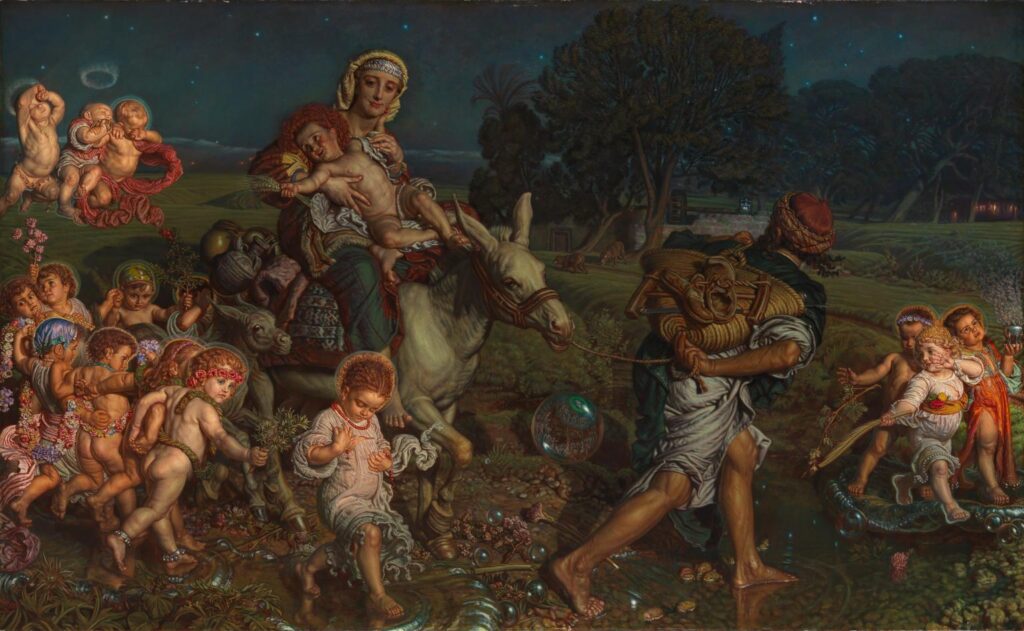
Readings: Psalm 124; Matthew 2:13-18
[I]f the Lord himself had not been on our side, when men rose up against us, Then would they have swallowed us up alive… But praised be the Lord, who has not given us over to be prey for their teeth.
Psalm 124
A voice was heard in Ramah, weeping and loud lamentation, Rachel weeping for her children; she refused to be comforted, because they are no more.
Matthew 2
Sara Bramsen
December 28 marks the Feast of the Holy Innocents, remembering Herod’s slaughter of all the male children aged two and under in Bethlehem and its vicinity, in an attempt to eliminate Jesus, the new “King of the Jews.” There is something jarring about reading Matthew’s account of this event in conjunction with Psalm 124 because it would appear that God was not on the side of the innocent in that case; it certainly seems as though they were given as prey to the teeth of their enemies, from whose snare they did not escape.
Also jarring is the contrast between the fate of hundreds of innocent young boys and God’s supernatural protection of his own son, first by warning the wise men in a dream not to return to Jerusalem (wasn’t it their obedience to that warning, their failure to point out to Herod the one true king, which resulted in this unjust mass murder?), and then by sending an angel to warn Joseph in another dream to flee with his family to Egypt.
And yet, the wonder of the Incarnation is that the God of the universe chose to subject himself to our human frailty to the point of needing to flee his own creatures. In William Holman Hunt’s painting, The Triumph of the Innocents, the toddler Jesus’ pose as he reclines against his mother, his vulnerability pictured in his virtual nakedness, echoes the pietà art form in which Mary supports the adult Jesus’ dead body—thus pointing to the reason why these innocents can triumph over physical death. Because, of course, God only spared his own son for a time. Jesus escaped violent death at the hands of corrupt earthly authorities as a toddler only to meet violent death at the hands of corrupt earthly authorities as a man. The death of his son had been God’s plan all along and it could not be thwarted, delayed, or hurried by any evil act that man or devil could devise. And, when the time was right, Jesus met that death willingly, purposefully, precisely so that he might deal a mortal blow to the desperate sin-sickness of a world where such heinous atrocities can occur. The Incarnation ultimately redeems all sin, all tragedy, all injustice—defeating even Death itself.
Prayer: Almighty God, out of the mouths of children you manifest your truth, and by the death of the Holy Innocents at the hands of evil tyrants you show your strength in our weakness: We ask you to mortify all that is evil within us, and so strengthen us by your grace, that we may glorify your holy Name by the innocence of our lives and the constancy of our faith even unto death; through Jesus Christ our Lord, who died for us and now lives with you and the Holy Spirit, world without end. Amen.
Art: William Holman Hunt, The Triumph of the Innocents, 1883-1884.
Song: My Deliverer by Rich Mullins